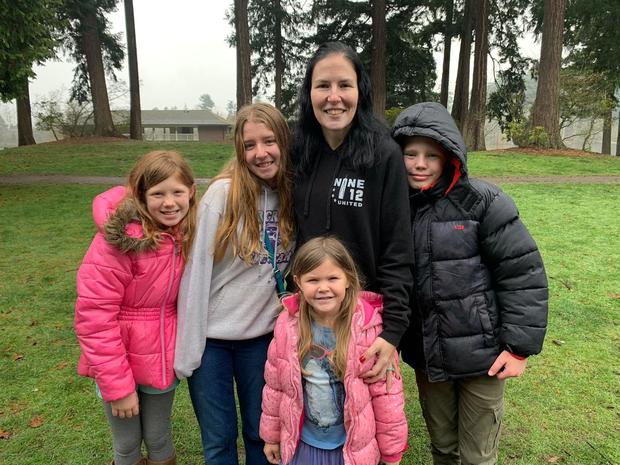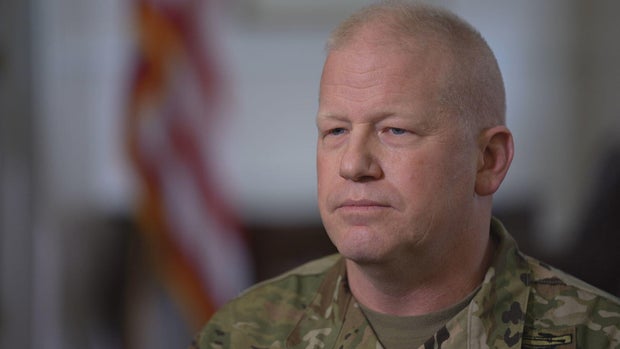Kay, a military spouse, recently traveled back to a food bank to feed her family of six. Her family is one of many military families facing food insecurity during the coronavirus pandemic.
“It lasts a couple of days, maybe just because there are so many of us in the house,” said Kay, who didn’t want her last name used for privacy reasons.
Her husband, an E-5 sergeant, works at Joint Base Lewis-McChord near Tacoma, Washington. His take-home pay is roughly $3,000 a month. It’s not enough.
“I cannot feed my kids. I cannot make this vehicle payment because I had to feed my kids. It’s just unacceptable, really,” Kay said.
Since the pandemic hit, one study found nearly 40% of active-duty service members have food insecurity; for minority members, it’s more than half.
There is not a food pantry at JBLM. Colonel Trey Rutherford, chief of staff for the Seventh Infantry Division, said the base does not track food insecurity either. Rutherford encouraged struggling families to seek help.
“We challenge families to have the courage to trust in us, to trust in their leaders, to help them solve the challenges,” Rutherford said. “And they need to feel comfortable saying, ‘Hey family, I need some assistance.'”
The Army Emergency Relief Program helps with budgeting, financial planning and loans for food. The program has disbursed more than $38,000 for regular food assistance, according to JBLM’s Directorate of Personnel and Family Readiness.
But military culture prizes resilience. Asking for help can feel taboo. “So in talking to other spouses, it was kind of like, no, that’s kind of hush-hush,” Kay said.
“We know that families have been struggling with this for a long time, but they have often done so quietly. But now we’re starting to see families open up a little bit more and seek out that support, which is really good news,” said Shannon Razsadin, the executive director of the Military Family Advisory Network.
Many military spouses have lost jobs during the pandemic. JBLM has tracked at least 350 families within the 7th Infantry Division have lost their second income.
“They are challenged. They are squeezed,” Rutherford said. “We must get better and we will get better.”
Congresswoman Marilyn Strickland’s district includes JBLM. She spoke recently at a virtual town hall about hunger in the military. In December, Congress failed to approve a Military Family Basic Needs Allowance. The newly-elected congresswoman said that must change. “The people who serve our country should not have to worry about food on the table,” she said at the town hall.
Kay has since cut her family’s meals to two a day. “It was hardest for the little one just because she doesn’t understand. ‘I’m hungry. I always eat when I’m hungry,'” she said.
For those who would like more information on how to help military families, visit: www.combatmilitaryhunger.org.




















